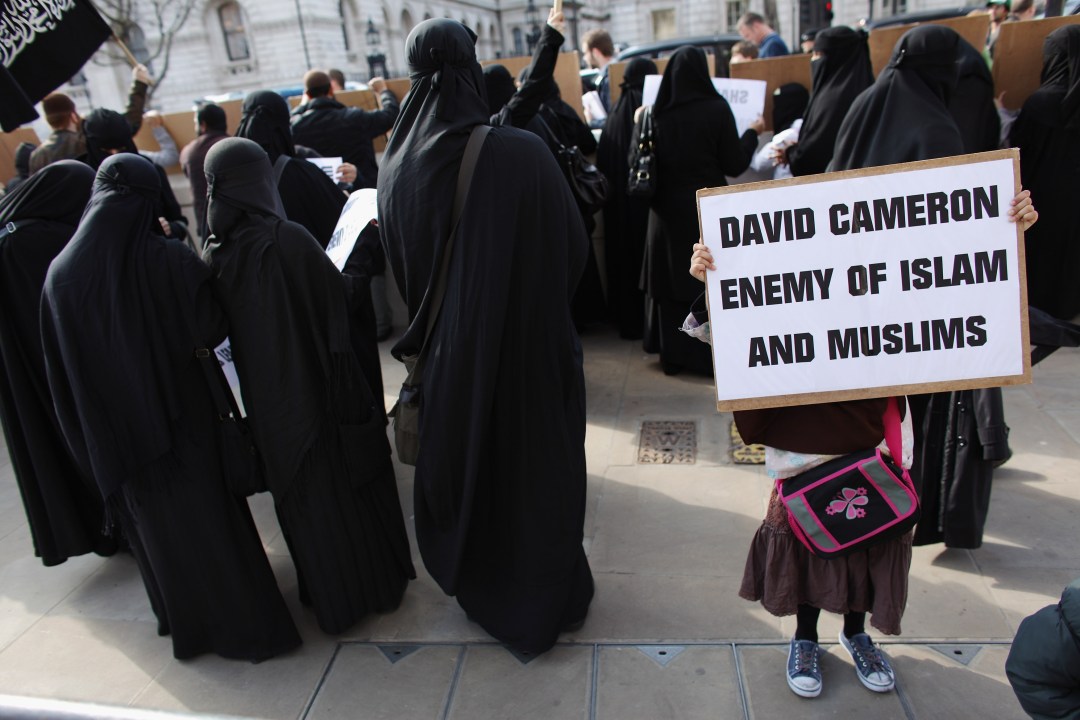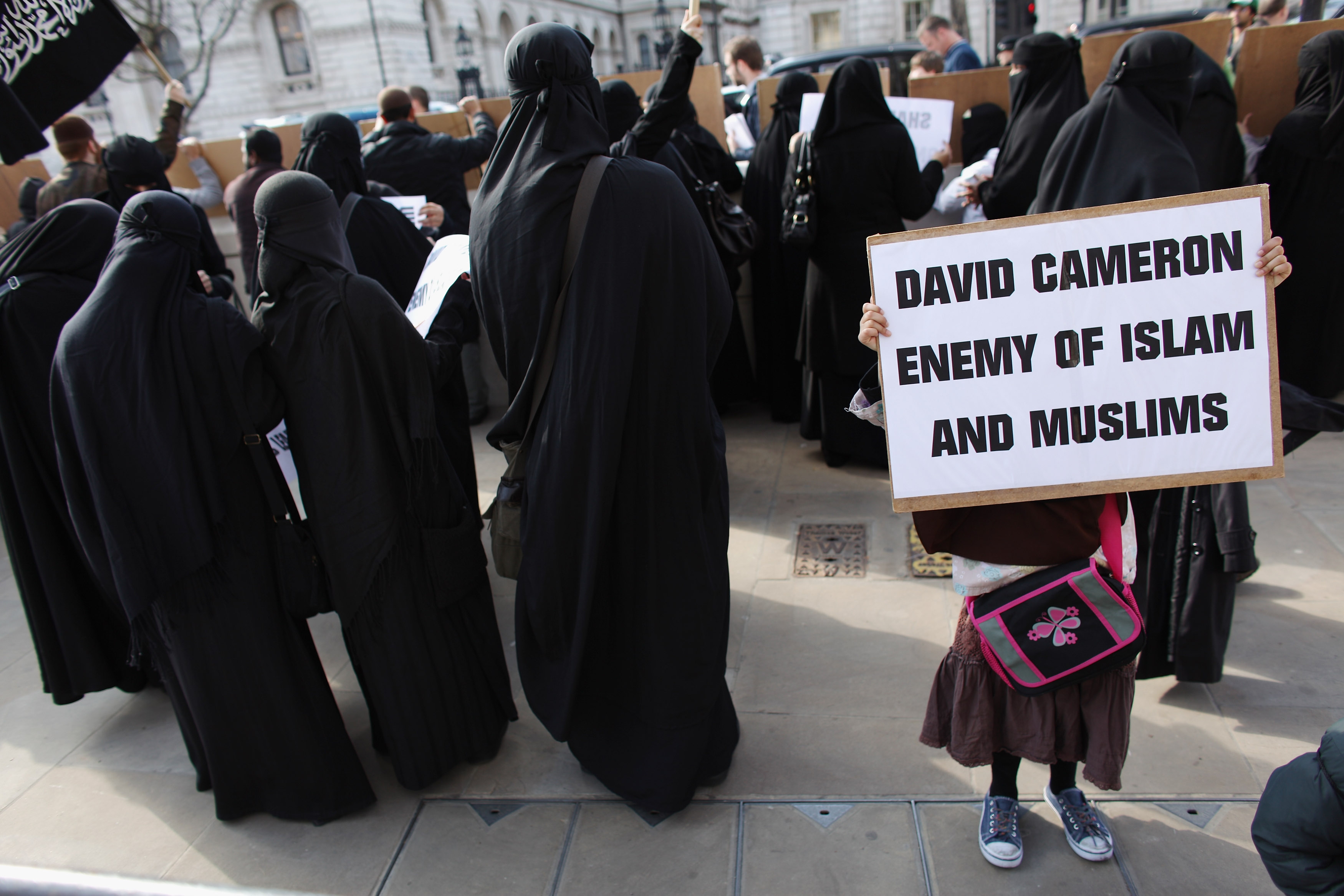To read Douglas Murray’s cover story from this week’s edition of the magazine (subscribe!) you might think the British government is not only losing the battle against Islamist extremism and Jihadism in this country but that it wants to lose that struggle. I think this is weak but pretty pernicious sauce.
But it is the sort of thing that will appeal to some. Especially those with a mania for betrayal. Only the strong and the vigilant and the this-is-how-it-is-chum brigade are tough enough to see the pathetic and craven weaklings currently staffing the government, the legal profession and the civil service for what they really are: the next worst thing to traitors.
It is a myth and a bullshit one at that. Like most such myths it is also self-serving, a kind of muscular preening that is as ridiculous as it is revolting. As a general rule, these are people who set fire to a tiny straw man and think they’ve knocked-out Sonny Liston.
You see – and must remember – there is always one person who understands the true nature of the threat. One person who gets it. One person who could make a difference if only he (or sometimes she) was not being let down, indeed betrayed, by everyone else. In this instance that One Saviour is Teresa May. The Home Secretary knows what needs to be done but is frustrated at every turn. The stench of weakness and betrayal is all around.
Because neither May’s colleagues in government, nor the civil servants who work for her, nor the courts can be trusted. You might think this an exaggeration. Douglas Murray is here to tell you it ain’t. You see:
At every turn, those who want not only to keep the people of this country safe, but to defeat this enemy, find people who are working against not just them, but all of us.
Really? And what is the evidence mustered to support this claim? Baroness Warsi spoke at a conference organised by the Federation of Student Islamic Societies. A civil servant criticised a speech given by the Prime Minister. And Abu Qatada has not yet been deported. That’s it. That’s the sum total of the evidence corralled to support the claim that large parts of the government, civil service and legal profession are “working against” those who want “to keep the people of this country safe”.
A reasonable person might think that one successful Islamist attack in eight years points towards the conclusion that the country is already and actually quite safe. Perhaps that reflects a run of good luck (and terrorist incompetence) that must run out at some point. That is certainly possible. But it also, surely, demonstrates that the threat, while real, is also containable. Or, at least, has been contained in recent years.
Douglas Murray asks if last week’s horrific murder in Woolwich will “change things”. Unsurprisingly, he concludes that it will not. Sure:
Some more members of the public will recognise the serious and malignant threat that Islamic fundamentalism poses. But among our politicians, there will be no change. Not only because across government and across all parties there are people who believe there is no problem — but because there are so many people and powers in place to stop this country doing what it needs to do.
But who are these people who believe “there is no problem”? We are not told, perhaps because identifying them is harder than you might think given how many of them there are supposed to be. That’s for the rather good reason that there are very few people in any position of influence who really do think there is “no problem“. There is a real threat and it is often severe. This being so it seems sensible to adopt policies that do not encourage or incubate that threat.
But what is Douglas Murray’s prescription? Only this:
It is not hard. Deport illegals, lock up radicals, tell the sympathisers the game is up, and fight not for a draw but for victory against this enemy. There are those who would like to do this. But they have been magnificently trussed up. The people dancing around them are the same people dancing mockingly around all of us.
Actually, it is hard. We remain, happily, a nation of laws. It is breezily easy to call for the deportation of illegals, the locking up of radicals and telling sympathisers that “the game is up”. But translating that into policy is rather different. Upon what grounds, for instance, are “radicals” to be locked up? (And for how long?) What abridgements of speech, assembly and other once-considered-significant rights are we prepared to tolerate?
People will disagree on each of these matters. That’s fine. But there is something childish about pretending these are simple issues that can be settled if only ministers, judges, the press and everyone else demonstrates sufficient willpower to get it done.
And would it get it done? I have my doubts. We have some experience of internment in this country and our most recent such experience was not a happy one. That does not mean the failures of Irish internment would be repeated if the policy was reintroduced today. Of course Douglas Murray does not go so far as to call for internment himself but the logic of his argument – all the locking up, the firm reminder that the “game is up” – points towards such a conclusion.
And that, I think, would be folly. If this is to remain a free country – and despite some questionable security decisions these past ten years it does remain a free country – then we need to retain some sense of proportion. Jailing people because we find their views objectionable is one way of losing that sense of proportion.
Moreover, it risks exacerbating the very problems everyone would like to see minimised. It is easy to scoff at all these silly politicians talking about Islam as a “religion of peace” because, sure, the actions of the jihadists rather refute that notion. Nevertheless, when did it become sensible to judge the merits of an entire religion by the monstrous excesses of a relative handful of its adherents?
The jihadist movement – which, again, does exist – desires few things more keenly than the chance to divide Britain into muslim and non-muslim camps. That being so, it seems foolish and dangerous to help them do that. The reason politicians talk about a “perversion of Islam” is precisely to avoid sending a message to young and impressionable muslim men that, actually, the jihadist critique just might have some truth to it. If we build a cold house for British muslims, we make it more likely some of them will wish to destroy it.
This is neither weakness nor appeasement. It is good sense. All jihadists may be muslim; it is grotesque to suppose all muslims are potential jihadists. But treating them as though they may be is one way to increase sympathy for the real jihadists. Denigrating someone’s sense of identity is one sure way of ensuring they will have less time for your point of view.
Finally, Douglas Murray – and those who think like him – seems alarmingly happy to be ruled by a government that thinks the rule of law a trivial and out-dated concern to be ignored or swept aside whenever it’s deemed inconvenient to actually obey the law. And once that process of tree-felling begins, where will it end?
The British government’s anti-terrorism policies and attitudes may often be muddled or confused or more dependent upon good fortune than we might like. Nevertheless it is hard to make a coherent case that these policies have failed in recent years. One low-tech murder, no matter how horrific it was, does not demonstrate failure, far less a pressing need to start locking people up chiefly because we do not like or approve of the opinions they hold or, from time to time, dare to express.
I think the United Kingdom is a bigger – and better – place than that and I only wish other people could muster more confidence in the rule of law and the strengths and virtues of a liberal, open society.








Comments